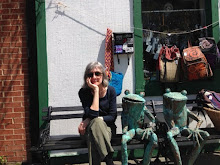How many times have we heard the expression, or said it ourselves: "I don't just want to be a number"?
Jews traditionally have a complex attitude regarding the notion of counting people. In fact, we have a very ancient tradition of avoiding counting people directly. With roots tracing back to the Bible itself (and likely earlier), counting people directly has been considered taboo.
When counting was necessary, as for a military census, it was supposed to be done indirectly - for example by having all the eligible men contribute a half-shekel coin and then counting the coins instead of the men.
When we need to know if there are ten Jews present to make a minyan, a quorum for public prayer, it is traditionally forbidden to simply count - rather we are taught to count indirectly by reciting a biblical verse (such as from Psalms) containing exactly ten words.
Is all of this merely superstition?
In this week's Torah reading from the beginning of the Book of Numbers, the Israelites are in the wilderness and God instructs Moses to take a head count: "Take a census of the whole Israelite community by the clans of its ancestral houses, listing the names, every male, head by head..."
The medieval rabbinic commentator Rashi tells us that God's desire to count the Israelites was an expression of love. The people were dear to God, not only as a nation but also as individuals.
But wait - We're taught that counting people is forbidden. So how could this counting be an expression of God's love?
Perhaps the answer lies in the detail that Moses is instructed to list the names of each person, not merely to count them. Each person is more than just a number.
Every person is of value, no matter how large the group. We are each of us more than just a number. Every person counts.
So our traditional avoidance of counting people may not be about superstitiously avoiding the "evil eye" - instead, we could say that it is about being aware of and honoring the preciousness of each and every human being.
May we all be awake to the uniqueness and value of each person who we encounter in our lives.
Jews traditionally have a complex attitude regarding the notion of counting people. In fact, we have a very ancient tradition of avoiding counting people directly. With roots tracing back to the Bible itself (and likely earlier), counting people directly has been considered taboo.
When counting was necessary, as for a military census, it was supposed to be done indirectly - for example by having all the eligible men contribute a half-shekel coin and then counting the coins instead of the men.
When we need to know if there are ten Jews present to make a minyan, a quorum for public prayer, it is traditionally forbidden to simply count - rather we are taught to count indirectly by reciting a biblical verse (such as from Psalms) containing exactly ten words.
Is all of this merely superstition?
In this week's Torah reading from the beginning of the Book of Numbers, the Israelites are in the wilderness and God instructs Moses to take a head count: "Take a census of the whole Israelite community by the clans of its ancestral houses, listing the names, every male, head by head..."
The medieval rabbinic commentator Rashi tells us that God's desire to count the Israelites was an expression of love. The people were dear to God, not only as a nation but also as individuals.
But wait - We're taught that counting people is forbidden. So how could this counting be an expression of God's love?
Perhaps the answer lies in the detail that Moses is instructed to list the names of each person, not merely to count them. Each person is more than just a number.
Every person is of value, no matter how large the group. We are each of us more than just a number. Every person counts.
So our traditional avoidance of counting people may not be about superstitiously avoiding the "evil eye" - instead, we could say that it is about being aware of and honoring the preciousness of each and every human being.
May we all be awake to the uniqueness and value of each person who we encounter in our lives.
